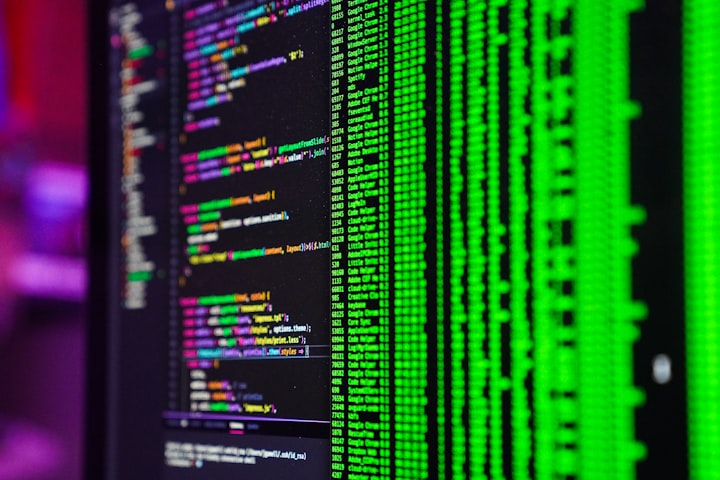The Dawn of Quantum Computing: The Future is Now
Quantum computing is a revolutionary technology that has the potential to change the world as we know it. Unlike classical computing, where bits are either 1 or 0, quantum computing uses qubits that can be both 1 and 0 at the same time through a process called superposition. In this article, we will explore the fundamentals of quantum computing, how it works, its benefits and limitations, use cases, hardware and software, the future of quantum computing, and its ethical implications.

Quantum Computing:
Quantum computing is a revolutionary technology that has the potential to change the world as we know it. Unlike classical computing, where bits are either 1 or 0, quantum computing uses qubits that can be both 1 and 0 at the same time through a process called superposition.
This allows quantum computers to perform certain tasks much faster than classical computers, making them ideal for complex problems in fields such as cryptography, drug discovery, and optimization.
In this article, we will explore the fundamentals of quantum computing, how it works, its benefits and limitations, use cases, hardware and software, the future of quantum computing, and its ethical implications.
1. Introduction to Quantum Computing:
What is Quantum Computing?

Quantum computing is a rising field of computing where the fundamental principles of quantum mechanics are used to process information. This is a significant departure from classical computing, where information is processed as a series of bits, either as 1 or 0.
In quantum computing, information is processed using quantum bits, known as qubits, allowing for exponentially faster processing speeds.
History of Quantum Computing:
The idea behind quantum computing has been around since the early 1980s. In 1982, physicist Richard Feynman spoke on the topic of quantum computing, addressing how it would allow for faster computing times.
However, significant progress towards the creation of a functioning quantum computer wasn't made until the 1990s when the first basic quantum computing algorithms were developed.
Since then, there have been enormous advances in the field, and we now have quantum computers that can surpass the processing power of classical computers.
2. How Quantum Computing Works?
Quantum Bits (Qubits):

A qubit is a fundamental unit of quantum information. Unlike classical bits that have a value of either 1 or 0, qubits can be in two states simultaneously.
This state is known as superposition, and it allows quantum computers to perform multiple calculations at once.
Quantum Entanglement:
Quantum entanglement is one of the most fascinating aspects of quantum computing. It involves a relationship between two qubits where the properties of both qubits are inherently connected.
This means that when one of the qubits is measured, the state of the other qubit is immediately known, regardless of the distance between them.
Quantum Superposition:
Another essential concept in quantum computing is quantum superposition. When a qubit is in a state of superposition, it can be in multiple states at the same time.
This property allows a quantum computer to perform many calculations simultaneously, significantly speeding up the computing process.
3. Benefits and Limitations of Quantum Computing:
Benefits of Quantum Computing:
Quantum computing has enormous potential in solving complex problems that are impossible to solve with classical computers. These include optimization problems, cryptography and security, and drug discovery.
Limitations of Quantum Computing:
One of the primary constraints of quantum computing is the difficulty in developing stable, reliable qubits. Additionally, quantum computers require a highly controlled environment, which makes them expensive and difficult to build.
4. Quantum Computing Use Cases:
Cryptography and Security:
Quantum computing can play a crucial role in cryptography and security. It can solve complex mathematical problems in seconds, which means that hacking into encrypted data becomes much easier.
Drug Discovery:
Quantum computing can drastically speed up the process of drug discovery. It can simulate the interactions between molecules, making it possible to identify the most effective drug combinations.
Optimization Problems:
Optimization problems, such as route optimization and scheduling, can take an incredible amount of time to solve with classical computers. Quantum computing makes it possible to solve these problems much faster.
Machine Learning:
Quantum computing can help in building more powerful machine learning models. It can perform complex computations in parallel, enabling faster and more efficient training of machine learning models.
5. Quantum Computing vs Classical Computing:
Quantum computing is a fundamentally different approach to solving problems compared to classical computing. While classical computers process information in a binary system of ones and zeros, quantum computers use quantum bits, or qubits, which can exist in multiple states simultaneously.
This property, called superposition, allows quantum computers to perform certain calculations exponentially faster than classical computers. Additionally, quantum computers can use quantum entanglement to perform complex calculations by pairing qubits together in a way that classical computers cannot.
How They Differ?
The main difference between quantum and classical computing lies in their processing units. Classical computers use bits to represent information, which is stored as either a 0 or a 1.
In contrast, quantum computers use qubits, which can store both a 0 and a 1 at the same time. This ability to store multiple values simultaneously is what gives quantum computing its exponential speedup compared to classical computing.
Strengths and Weaknesses of Each:
The strengths of classical computing lie in its versatility and accessibility. Classical computers can perform a wide range of tasks, from simple arithmetic to complex simulations.
They are also widely available and affordable, making them accessible to most people. However, classical computers have limitations in terms of processing power and speed, which makes certain tasks impossible or impractical.
On the other hand, the main strength of quantum computing is its ability to perform certain calculations exponentially faster than classical computers. This makes quantum computing ideal for tasks that require massive amounts of data processing, such as cryptanalysis, drug discovery, and optimization problems.
However, quantum computing is still in its infancy, and its cost and accessibility are limited. Additionally, not all problems can be solved using quantum computing, and certain tasks may require a hybrid approach that combines classical and quantum computing.
6. Quantum Computing Hardware and Software:
Types of Quantum Computers:
There are currently several different types of quantum computers in development, including superconducting qubit, ion trap, photonic, and topological qubit computers. Each type of quantum computer has its own advantages and disadvantages, depending on the specific application.
Programming Quantum Computers:
Programming quantum computers requires a fundamentally different approach compared to classical computing. While classical computing uses programming languages such as C++ or Python, quantum computing uses quantum programming languages such as Qiskit or Cirq.
These languages are designed to handle the unique properties of qubits, such as superposition and entanglement. Additionally, quantum algorithms are different from classical algorithms and require a deep understanding of quantum mechanics.
7. Future of Quantum Computing:
Advancements in Quantum Computing:
As research and development in quantum computing continue to progress, it is likely that the technology will become more accessible and affordable.
This could lead to significant advancements in fields such as chemistry, finance, and machine learning. Additionally, researchers are exploring the potential of quantum networks, which could enable faster and more secure communication compared to classical networks.
Challenges to Overcome:
There are several challenges that need to be overcome before quantum computing can reach its full potential. One major challenge is developing practical quantum error correction, which is necessary for scaling up quantum computers to handle larger, more complex problems. Additionally, quantum computers are vulnerable to outside interference, which could compromise the accuracy of their calculations.
8. Ethical Implications of Quantum Computing:
Privacy and Security Concerns:
Quantum computing has the potential to break many of the encryption methods used to protect sensitive data. This could lead to privacy breaches and security threats, particularly in industries such as finance, defense, and health care.
As quantum computing becomes more powerful, it will be important to develop new encryption methods that are resistant to quantum attacks.
Impact on Jobs and Society:
Quantum computing could have a significant impact on the job market, particularly in fields such as cryptography and data analysis. As these tasks become automated, there may be a shift in the types of jobs that are available.
Additionally, quantum computing could potentially solve some of the world’s most pressing problems, such as climate change and disease. However, it is important to consider the ethical implications of these advancements and ensure that they are used for the benefit of society as a whole.
Conclusion:
In conclusion, quantum computing has the potential to revolutionize various industries and change the way we solve complex problems.
Although there are still many challenges to overcome and much more research required in quantum computing, it is an exciting time for this emerging technology. As we continue to push the boundaries of what is possible, it will be interesting to see the developments and advancements that arise from quantum computing.





Comments
There are no comments for this story
Be the first to respond and start the conversation.